Previously on Giulio Cesare… English Touring Opera’s new season caters cannily to the box-set generation by chopping Handel’s Egyptian power-and-politics opera in two, playing each half on consecutive evenings as edge-of-your-seat instalments in a sort of baroque House of Cards. Will Cleopatra outwit her wicked brother? Will she and Cesare ever get together? Will Sesto ever stop dithering and do the deed? Tune in tomorrow night to find out.
If that sounds like the kind of pacy, racy entertainment you’ve always longed for in the opera house, be warned; this is Giulio Cesare: the Director’s Cut, doggedly and absolutely complete, down to every last recitative, aria and interlude. By way of a bonus feature, ETO has also thrown in a massive repeat — a sort of dramatic da capo that reprises the final 45 minutes of Part I: The Death of Pompey as the start of Part II: Cleopatra’s Needle, with only minor directorial variation. It’s a misstep that seems either cynical (we’ll get them to pay twice for one show) or cowardly (no one will bother coming to both parts, so we’d better bring them thoroughly up to date), and one that strains both cast and audience unnecessarily. A case of Don’t Carry On Cleo.
That being said, this is still one of the best shows we’ve seen in ages from ETO — England’s Little Opera Company That Could, which works miracles within the difficult constraints of a small budget and a large tour. Cordelia Chisholm’s set (which also houses Rameau’s Dardanus, this season’s companion opera) is a handsome, adaptable affair. Gilded walls, sliding panels and endless doors give the cast plenty to play with, and serve as an antique picture frame to the 18th-century action that takes place within, gorgeously costumed in turquoise and gold.
Director James Conway makes no obvious political or dramatic capital from this setting — we could be in 18th-century Chatsworth or 21st-century Chiang Mai, for all it matters — preferring to focus on the emotional interplay of his characters. Here he benefits from a cast who give him plenty of light and shade, from Soraya Mafi’s quick-witted, piquant Cleopatra — revealing unexpected depths in both ‘Se pietà’ and ‘Piangerò’ — and Catherine Carby’s Cornelia, stoic and quietly ferocious, to Kitty Whately’s traumatised Sesto. If Christopher Ainslie’s Cesare (efficiently, if a little mono-chromatically sung) remains a cipher, it only serves to tip the opera’s sensitive power dynamic further in favour of this irresistible Cleopatra.
Conway’s discreet production will please anyone who doesn’t like their opera mucked about with, but while this non-interventionist approach gives the opera’s tragic moments plenty of space to swell and simmer (an episode involving Tolomeo and the dead Pompey’s ashes is properly chilling) it’s largely tone-deaf to the comedy that trills itself so joyously through Handel’s score. Better served by Jonathan Peter Kenny and the Old Street Band, the music romps and chuckles with naughty rhythmic urgency and verve, using the bite and snap of Hackney Empire’s dry acoustic as the punchline to their many musical jokes.
But that’s all the fun you’ll be getting from ETO this season. Dardanus — the company’s first foray into French baroque — is a dispiriting and joyless affair that wastes the talents of its leads and squanders the work’s beautiful ballet interludes on visual fuss and filler. As if doing penance for the unapologetic prettiness of Cesare, director Douglas Rintoul condemns us to penal servitude in the same muddy, gravelly, non-specific war zone (fatigues and guns all standard issue) familiar from so many contemporary productions. It’s neither dramatically organic nor terribly interesting, and it’s a sign of just how joy-starved the first-night audience felt that some party poppers and a pair of fairy wings raised a cheer.
Rameau’s wizards and goddesses struggle to find a foothold in this inhospitable landscape, just as his delicate music fails to bloom in Hackney’s arid acoustic. But Anthony Gregory’s Dardanus works something close to magic on the show, luminous and easy from his first, punishingly high entry to his happy ending, transforming base dramatic metal into gold. Together with Galina Averina’s glossy Iphise (pleasingly spirited, even if condemned to tread this rugged male terrain in her heels), sweet-voiced Eleanor Penfold (Venus) and Grant Doyle as stern father Teucer, he makes one hell of a pitch for repertoire that has never really caught on in the UK. But it’s still not quite enough.
Somewhere between the wilfully unlovely action, the failure to marry supernatural myth and modern warfare, and surtitles that would have been stiff even at the work’s 1739 première (littered with errors and confusions), Dardanus gets lost in translation — the latest victim of that weird streak of puritanical earnestness that pervades British opera, a decorative musical bibelot crushed to powder under army boots. I blame Brexit.
Got something to add? Join the discussion and comment below.
Get 10 issues for just $10
Subscribe to The Spectator Australia today for the next 10 magazine issues, plus full online access, for just $10.
You might disagree with half of it, but you’ll enjoy reading all of it. Try your first month for free, then just $2 a week for the remainder of your first year.

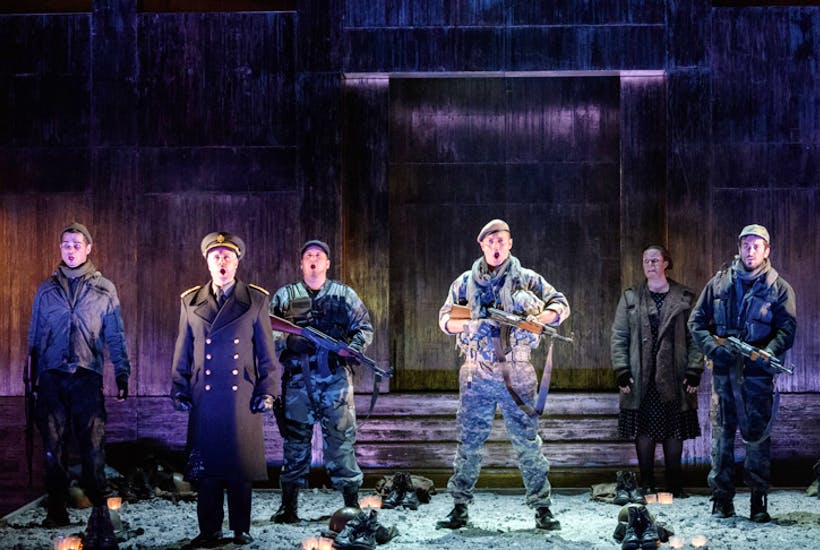

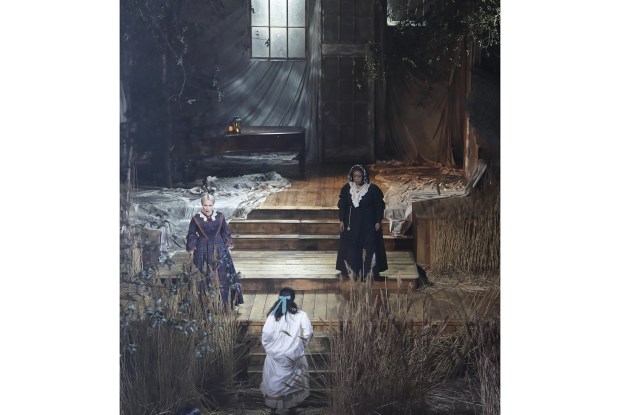
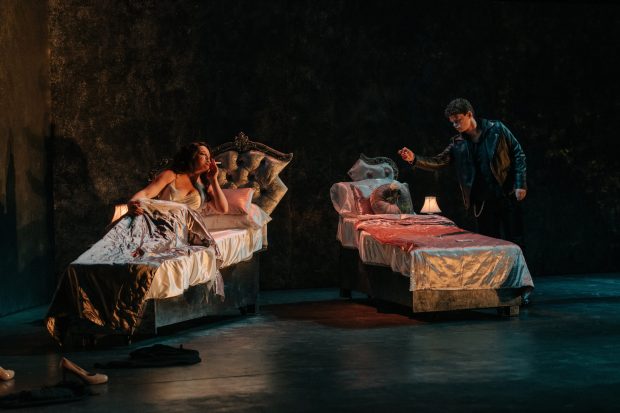
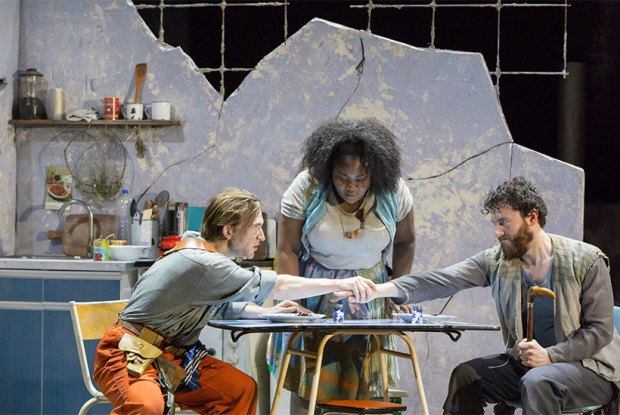
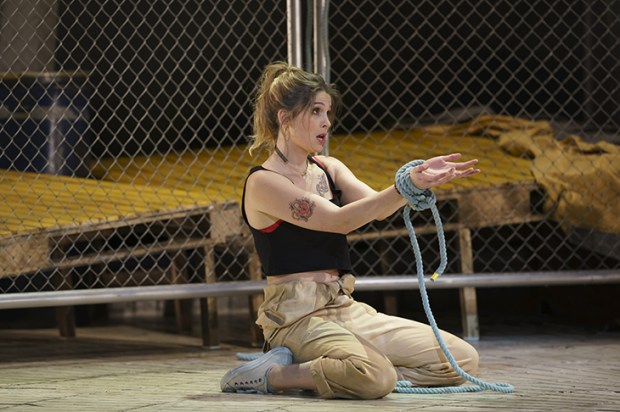
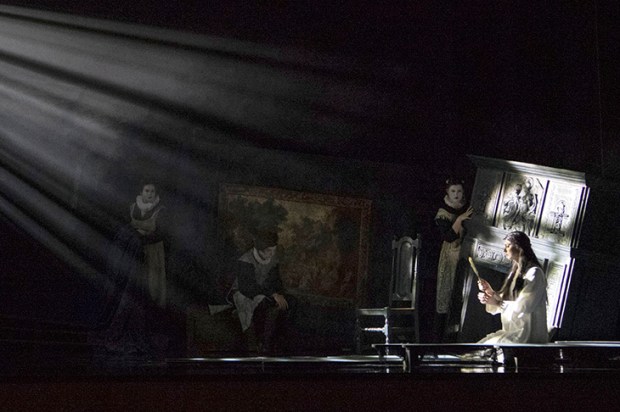






Comments
Don't miss out
Join the conversation with other Spectator Australia readers. Subscribe to leave a comment.
SUBSCRIBEAlready a subscriber? Log in